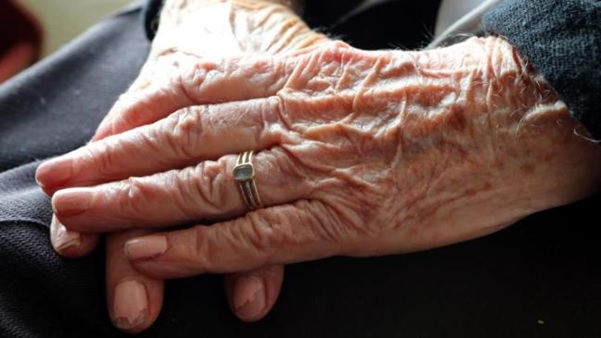Watching Allie forget Noah, the love of her life, in The Notebook, gave us the heebie-jeebies. Dementia is such a mental condition, which is pretty unjust in its symptoms of memory loss, confusion, declined concentration, and more. The most common type of dementia is Alzheimer’s. It holds the first place by accounting for 60-80% of all the cases of dementia.
As much as we wish for the glaring details of the disorder to halt here, it doesn’t happen so. And the fact is, Alzheimer’s is even more unjust in its selection of victims, as the disorder prefers women over men. Knowing that 60% of the Alzheimer’s caregivers are women is one thing. But it takes a while to get to grips with the news that nearly two-thirds of Alzheimer’s patients are women.
This translates into 3.2 million female patients with the neurodegenerative disorder out of the total 5 million US sufferers. Statistics stand in favor of more women patients in the UK as well. Out of the total 850,000 dementia cases, 61% are women, and 39% are men. In fact, for women over 80, Alzheimer’s is the chief cause of death. For men of the same group, the culprit ranks third.
What does the research say?
As unfortunate as it may sound, research, surveys, and statistics are all in agreement over the gender bias exhibited by Alzheimer’s. Not only do the early symptoms of Alzheimer’s show more in women but the severity of the disease also differs. Both the disorder’s development and progression are worse among women than men.
Research scrutinized the role of the gene, apolipoprotein E-4 (APOE4) that contributes to the genetic risk of the degenerative condition. The gene’s presence graces both the genders disproportionately, therefore, increasing the risk for one group. A single copy of the gene amps up the risk by around four times. Two copies of APOE4, on the flip side, enhance the disorder’s odds by ten times.
In the case of men, a single copy of the gene doesn’t chip in increased risk. On the other hand, two copies of the gene bump up the risk only by four times. Professor Christian Pike of the USC Leonard Davis School of Gerontology further added to this. He commented, “Even in the absence of dementia, APOE4 is associated with significantly increased atrophy and dysfunction of the brain and that affects women much more strongly than men.”
At the same stage, Alzheimer’s disease affects women more severely than men. Research backs this, as it reveals that thinking and memory functions of women are significantly affected relative to men.
Typical areas such as language and verbal skills, where women tend to outperform men, also come in the fold.
Surprisingly, the neurodegenerative condition aces in a clash between breast cancer and Alzheimer’s disease too. Alzheimer’s Association confirms that women in their 60s are two times more prone to develop Alzheimer’s as compared to breast cancer.
Contributing factors
Several factors are held accountable for this increased correlation between Alzheimer’s and women. Early studies held the long life of women as the explanation. However, as more research is conducted, different answers are emerging. Pointers that explain why Alzheimer’s affects women worse than men are described below:
1.Longevity
Since women live approximately 5% longer than men, age is celebrated as the first answer to the problem. The Alzheimer’s Society points out that above the age marker of 65, the risk of developing the disorder doubles almost every five years. Age, therefore, was considered a plausible solution for the 1.5-3 times higher odds of women developing Alzheimer’s.
Women, however, live only five years longer than men, whereas, Alzheimer’s starts 20 years prior the diagnosis.
2.Gender role
Studies also hold the conventional gender role responsible in this picture. Research claims that men exhibit a greater cognitive reserve that protects their mental performance. This increased cognitive reservation is due to their likelihood of working more than women do. Luckily, the numbers of women in the workforce are swelling. Almost 47% of the working populace in the US are now women.
Professor Keith Laws from this study are on the same page. He elucidated, “Genetics are hard to change but easier to screen, cognitive reserve is modifiable and with more women working, the next generation may suffer less.”
3.The role of hormones
The risk of women developing the degenerative disorder shoots after menopause. This has brought menopause and the subsequent drop in hormones in the limelight. A study indicates that the level of estradiol, a form of female estrogen hormone, drops with menopause. The hormone is important, as it plays a critical role in sustaining memory function in women. This leads to the gender gap in mental health and boosts women’s likelihood of developing the disease by two times.
4.Genetic reasoning
The role and influence of genetics have been explained above. The gene, APOE4 is present in 20% of the population. Both men and women carry the gene equally. However, the gene adds to the Alzheimer’s risk unevenly among the genders with women being more prone to the risk than men. Walter A. Rocca, professor of neurology and epidemiology at the Mayo Clinic in Rochester, Minn said, “We have now seen again and again that women that have [APOe4] have a much higher risk of getting Alzheimer’s than men of the same age who don’t have the gene.”
5.Cardiovascular health
A study also links heart health with the occurrence of Alzheimer’s. It claims heart diseases take the lives of men in their middle age. Subsequently, men who survive past 65 years of age have a healthier heart. Robust cardiovascular health, in turn, is held responsible for protecting the male brain from Alzheimer’s disease. This reduces their risk of developing the degenerative disease.
Hence, Alzheimer’s seeks more women victims, affects them more severely, and is also the principal cause of death for the aged. The reasoning is still not definite but revolves around genes, gender role, heart health, and hormones.
